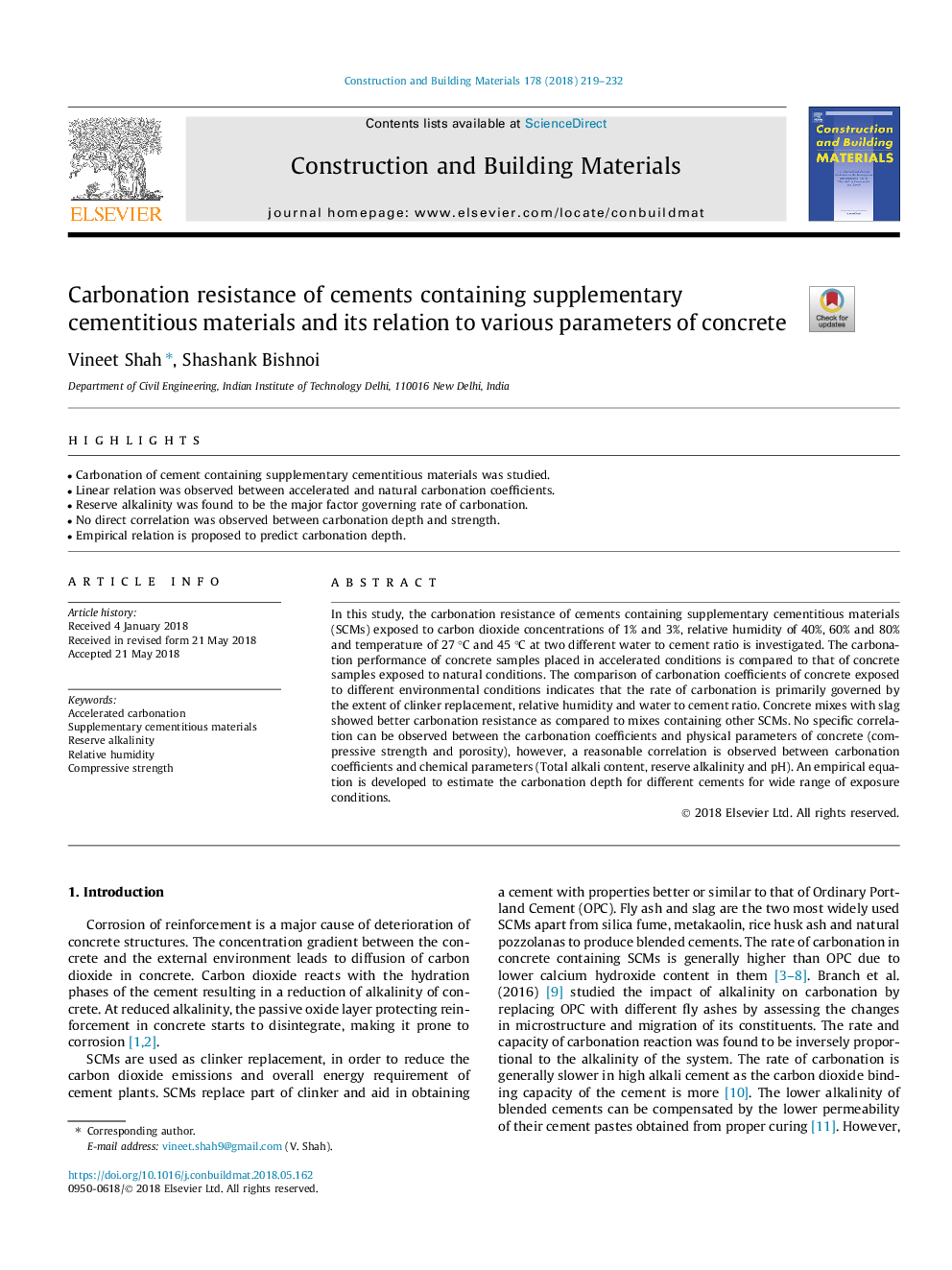| Article ID | Journal | Published Year | Pages | File Type |
|---|---|---|---|---|
| 6712818 | Construction and Building Materials | 2018 | 14 Pages |
Abstract
In this study, the carbonation resistance of cements containing supplementary cementitious materials (SCMs) exposed to carbon dioxide concentrations of 1% and 3%, relative humidity of 40%, 60% and 80% and temperature of 27â¯Â°C and 45â¯Â°C at two different water to cement ratio is investigated. The carbonation performance of concrete samples placed in accelerated conditions is compared to that of concrete samples exposed to natural conditions. The comparison of carbonation coefficients of concrete exposed to different environmental conditions indicates that the rate of carbonation is primarily governed by the extent of clinker replacement, relative humidity and water to cement ratio. Concrete mixes with slag showed better carbonation resistance as compared to mixes containing other SCMs. No specific correlation can be observed between the carbonation coefficients and physical parameters of concrete (compressive strength and porosity), however, a reasonable correlation is observed between carbonation coefficients and chemical parameters (Total alkali content, reserve alkalinity and pH). An empirical equation is developed to estimate the carbonation depth for different cements for wide range of exposure conditions.
Keywords
Related Topics
Physical Sciences and Engineering
Engineering
Civil and Structural Engineering
Authors
Vineet Shah, Shashank Bishnoi,
